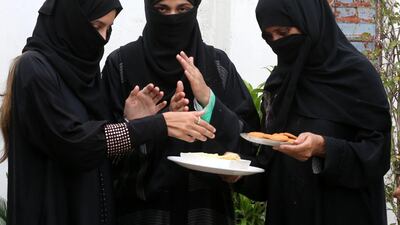Islamic instant divorces are not legal under EU law, the European Court of Justice ruled on Wednesday.
EU countries do not need to legally recognise private divorces including so-called “triple talaq” divorces, which are granted in some Sharia courts, as they have not been given by a state court.
In very few countries, a Muslim man can divorce his wife quickly by saying the word “talaq” three times in a Sharia court.
The ruling was brought about in relation to Syrian couple Raja Mamisch and Soha Sahyouni, who married in Syria and live in Germany. They both hold dual Syrian-German citizenship.
_______________
Read more:
The battle over ‘triple talaq’ in India goes far beyond Muslims alone
_______________
Mr Mamisch ended the marriage in 2013 by having a representative say the word “talaq” three times in a court in Latakia, Syria.
Ms Sahyouni, who married Mr Mamisch in Homs in 1999 and first moved with him to Germany in 2003, acknowledged the divorce in writing but later contested it in Munich when her husband applied for it to be formally recognised.
The state court in Munich ruled that the EU’s “Rome III” regulation applied, granting Mr Mamisch’s application. Rome III is a regulation concerning the applicable law regarding divorce in 16 EU countries and dictates which law should be applied in cross-border divorces.
"In the absence of a valid choice of applicable law and a common habitual residence of the spouses in the year preceding the divorce, the applicable law is determined in accordance with Article 8(c) of that regulation.
“Where both spouses have dual nationality, the decisive factor is their effective nationality within the meaning of national law. At the time of the divorce at issue, their effective nationality was Syrian," the Munich court said.
However, after Ms Sahyouni appealed, the ECJ said that Rome III does not apply to “private” divorces.
The regulation “does not apply, by itself, to the recognition of a divorce decision delivered in a third country," the EU’s top court said.
The ECJ has sent the case back to Munich to be decided under national law.
Triple talaq divorce was banned in India in August after women’s rights campaigners and Muslim women who had been divorced in such a way filed petitions against the custom.
Three of India’s Supreme Court judges called the practice "un-Islamic, arbitrary and unconstitutional" in a landmark ruling.
Triple talaq has already been banned in most Islamic countries including Pakistan and Bangladesh, however, the instant divorce system continued in India, which has a provision for personal laws for all religious groups.

